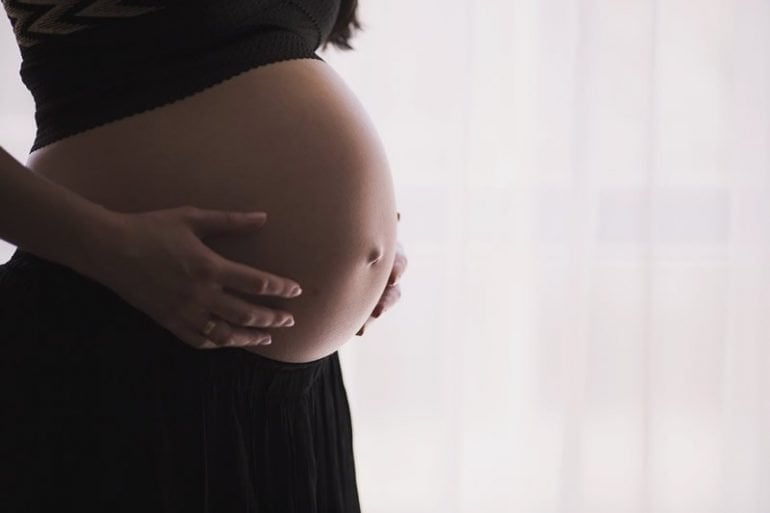Summary: COVID-19 poses a substantial and underappreciated risk to pregnant women, researchers warn. Some studies suggest the novel coronavirus can be transmitted to the fetus in utero. Researchers impress more research be conducted into the effects of COVID-19 infection during pregnancy and the risks it poses postnatally.
Source: Midwestern University
Amid the rapidly evolving global coronavirus disease 2019 (COVID-19) pandemic that has already had profound effects on public health and medical infrastructure across the globe, many questions remain about its impact on child health. New research published in the Journal of Clinical Virology indicates that the vulnerability of neonates and children and their role in the spread of the virus (severe acute respiratory syndrome coronavirus 2 [SARS-CoV-2]) should be included in preparedness and response plans.
According to lead author Kathleen M. Muldoon, Ph.D., Associate Professor, Anatomy at the Arizona College of Osteopathic Medicine at Midwestern University, the COVID-19 pandemic poses substantial and underappreciated risks to pregnant women, and perinatal infections endanger pregnancy outcomes. “Studies to date suggest that the virus can be transmitted to the fetus in utero,” Dr. Muldoon says. “Although the evidence for infection is under debate, the possible routes for infection are such that infection control measures are required to protect newborns.”
The potential for neonatal infection with the COVID-19 virus demands intensive study, including how viral pathology may or may not affect breast milk as the preferred method of infant nutrition, as well as the potential effects of vaccines on women of child-bearing age, unborn fetuses, and newborn infants.
“We are presenting the state of knowledge acquired to date about potential risks of transmission of SARS-CoV-2 to the fetus and newborn,” continues Dr. Muldoon. “This research is timely because information regarding the potential routes of acquisition of SARS-CoV-2 infection in the prenatal and perinatal setting is of a high public health priority. Vaccines targeting women of reproductive age, and in particular pregnant patients, should be evaluated in clinical trials and should include the endpoints of neonatal infection and disease.”
About this coronavirus research article
Source:
Midwestern University
Media Contacts:
Tony Johns – Midwestern University
Image Source:
The image is in the public domain.
Original Research: Open access
“SARS-CoV-2: Is it the Newest Spark in the TORCH?”. by Kathleen M. Muldoon et al.
Journal of Clinical Virology doi:10.1016/j.jcv.2020.104372
Abstract
SARS-CoV-2: Is it the Newest Spark in the TORCH?
Amid the rapidly evolving global coronavirus disease 2019 (COVID-19) pandemic that has already had profound effects on public health and medical infrastructure globally, many questions remain about its impact on child health. The unique needs of neonates and children, and their role in the spread of the virus (severe acute respiratory syndrome coronavirus 2 [SARS-CoV-2]) should be included in preparedness and response plans. Fetuses and newborn infants may be uniquely vulnerable to the damaging consequences of congenitally- or perinatally-acquired SARS-CoV-2 infection, but data are limited about outcomes of COVID-19 disease during pregnancy. Therefore, information on illnesses associated with other highly pathogenic coronaviruses (i.e., severe acute respiratory syndrome (SARS) and the Middle East respiratory syndrome [MERS]), as well as comparisons to common congenital infections, such as cytomegalovirus (CMV), are warranted. Research regarding the potential routes of acquisition of SARS-CoV-2 infection in the prenatal and perinatal setting is of a high public health priority. Vaccines targeting women of reproductive age, and in particular pregnant patients, should be evaluated in clinical trials and should include the endpoints of neonatal infection and disease.
Feel Free To Share This COVID-19 News.







